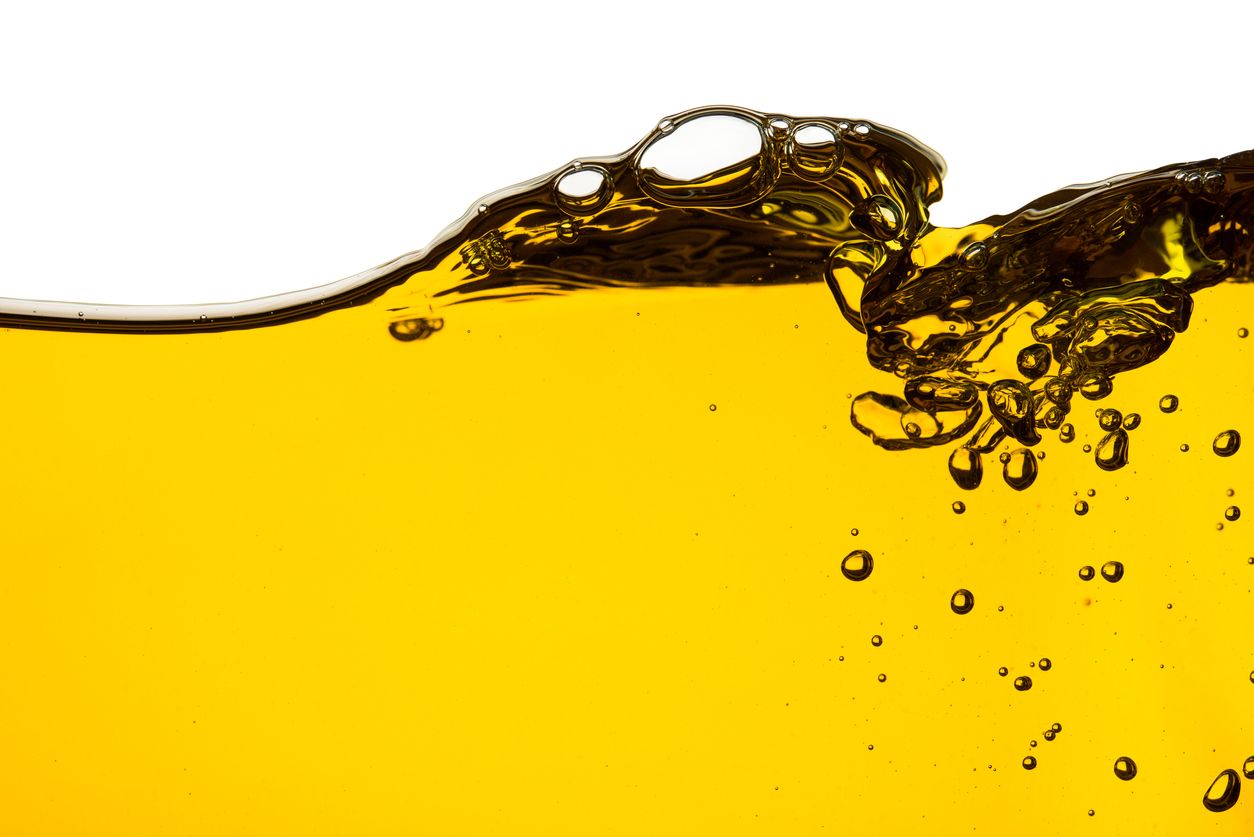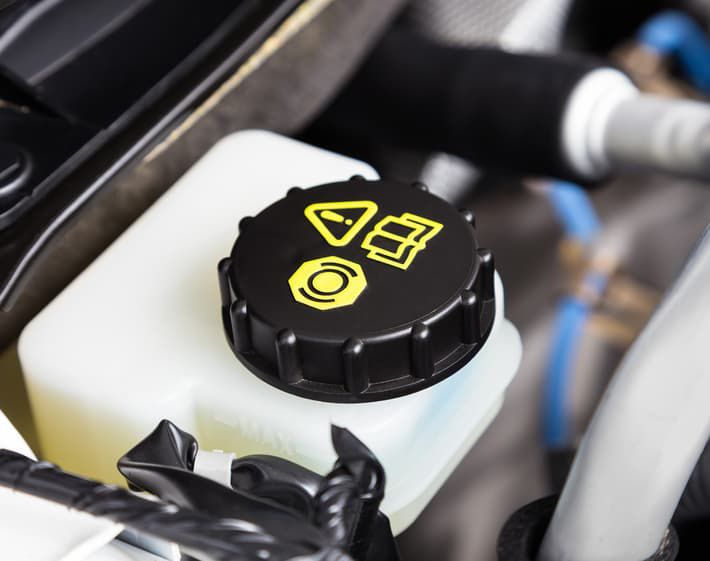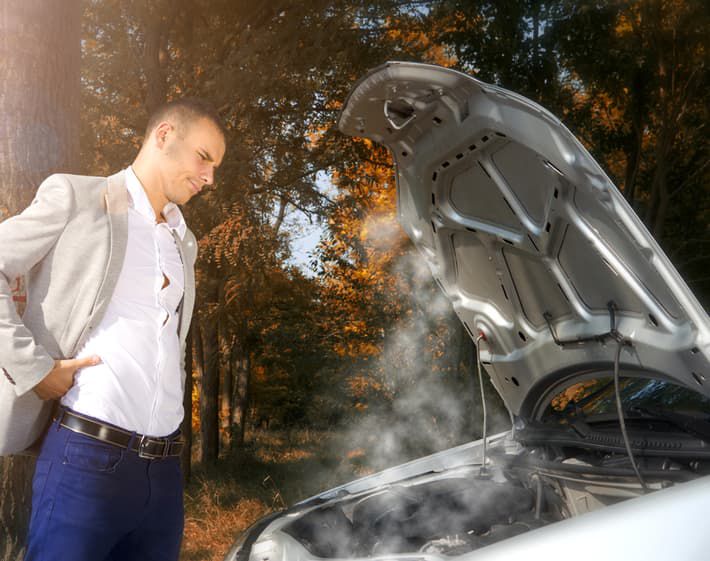Sure, you know all about motor oil — it needs to be serviced regularly, and you can find it at most convenience stores. But what about the other essential car oils and fluids that help to keep your vehicle running smoothly? Learn about the types of fluids in your vehicle, when it's time to change them, and the tell-tell signs that they need to be serviced.
Motor Oil
Lubricates engine components
When learning about the many fluids in a car, the first one that comes to mind is likely motor oil — also known as engine oil. Motor oil is one of the most vital fluids in your vehicle as it helps to keep all of the moving parts within your engine lubricated. Other benefits of engine oil include:
- Cooling - Transferring heat from hot engine parts
- Corrosion protection - Protecting against rust and acidic corrosion
- Cleaning - Trapping damaging dirt and other particles in the oil filter
If your motor oil isn't serviced regularly, you may experience a series of issues that can severely damage your engine, including engine failure. To ensure that your motor oil is replaced at the right time, check your owners manual, dashboard oil life indicator, or window sticker for information on oil change intervals. And if it's time to have your motor oil replaced, visit Tires Plus for a full-service oil change.
Windshield Washer Fluid
Provides more cleaning power for your windshield
Although this fluid isn't essential to your vehicle's ability to drive, it does play an important role in road safety. Windshield wiper fluid is made of powerful ingredients that can help break down the tough dirt, residue, and grime that latch onto your windshield. When it is not used and your windshield is dirty, you may experience lower visibility while driving, as this debris can impair your ability to see the road ahead. When selecting windshield wiper fluid, make sure it provides protection as to not freeze in your local climate.
Brake Fluid
Converts application of the brakes into stopping power
Brake fluid, which is also a hydraulic fluid, converts the force created by your foot on the brake pedal into pressure that slows down or stops your vehicle. Because your brakes are vital to safe driving, this fluid is also equally essential.
When your brake fluid is too low, your brakes may become unresponsive, your BRAKE warning light may come on, you may experience a soft pedal, and you might frequently find oily puddles beneath your car.
Over time, brake fluid can also "go bad." This happens when the fluid starts to absorb moisture from the air and when its corrosion inhibitors wear out, leading to fluid degradation, rusting, buildup in your brake lines, and ultimately brake failure. To prevent bad or low brake fluid, it's best to have the levels and quality of this fluid checked regularly.
To find your brake fluid service intervals, consult your owner’s manual for the recommended schedule. If you experience any of these issues or it's time for brake fluid replacement, drop by your local Tires Plus for a free brake inspection. We'll check out your brake fluid levels and recommend any best next steps required to keep your vehicle in safe driving condition.
Power Steering Fluid
Lubricates your power steering system
Power steering fluid keeps your car’s power steering system lubricated and hydraulically enables you to maintain proper control of your vehicle's steering wheel. In essence, this liquid helps to make turning your steering wheel a simple and manageable task.
Because car steering fluid doesn't demand frequent servicing, it's easy to neglect. When this fluid goes low, you may hear moaning sounds coming from your vehicle or have difficulty turning your steering wheel. To avoid these potential issues, inspect for leaks and check your fluid levels regularly by examining the power steering labeled dipstick in your engine bay.
Transmission Fluid
Lubricates and cools the transmission
Your transmission ensures that appropriate levels of speed and power go to your wheels at a wide range of road speeds. In short, it's the accelerator, stabilizer, and decelerator of your vehicle's road speeds. The transmission fluid, which lubricates and cools this system, is essential to safe operation.
In an automatic transmission, this fluid also provides the hydraulic pressure needed to make the components within your transmission work. For recommended fluid exchange intervals, check the maintenance schedule in your car’s owner’s manual.
And if you often find yourself in stop-and-go traffic, accelerating roughly, or towing heavy loads, it's best to have your transmission fluid checked more regularly by a professional. Don't leave the quality and function of your transmission up to chance. Visit your nearest Tires Plus location for auto transmission services, and we'll make sure you stay driving smoother, longer.
Coolant
Regulates engine temperature
When working, your engine produces high levels of heat. Coolant, also known as antifreeze or radiator fluid, collects this heat and transfers it to the radiator for cooling. Not only does this fluid help regulate heat from the engine, but it also staves off temperature fluctuations that can occur during extreme weather conditions. So, what is coolant for? In short, it helps to maintain the optimal operating temperature needed to keep your car from overheating.
Driving with low coolant may lead to some pretty serious problems with your vehicle, including head gasket damage, overheating, and "spontaneous" engine shutoffs. The latter being especially dangerous depending on when and where your engine shuts down. Signs of low coolant include:
Hotter air blowing from your A/C system High-temperature gauge is near or in the red on your dashboard Sweet-smelling odors coming from your A/C system
If you notice any of these issues, it's best to have your car radiator and cooling system inspected by a Tires Plus professional. To stay ahead of any potential problems, check your coolant levels at least twice a year — especially before the summer and winter months — and at manufacturer-recommended time frames.
Service Your Fluids at Tires Plus
Is your vehicle leaking a mysterious fluid? Is your power steering fluid or coolant low? Don’t wait until it’s too late to resolve the issue. Bring your car to your nearest Tires Plus, and our expert technicians will diagnose the problem and service all of your fluid and repair needs.



